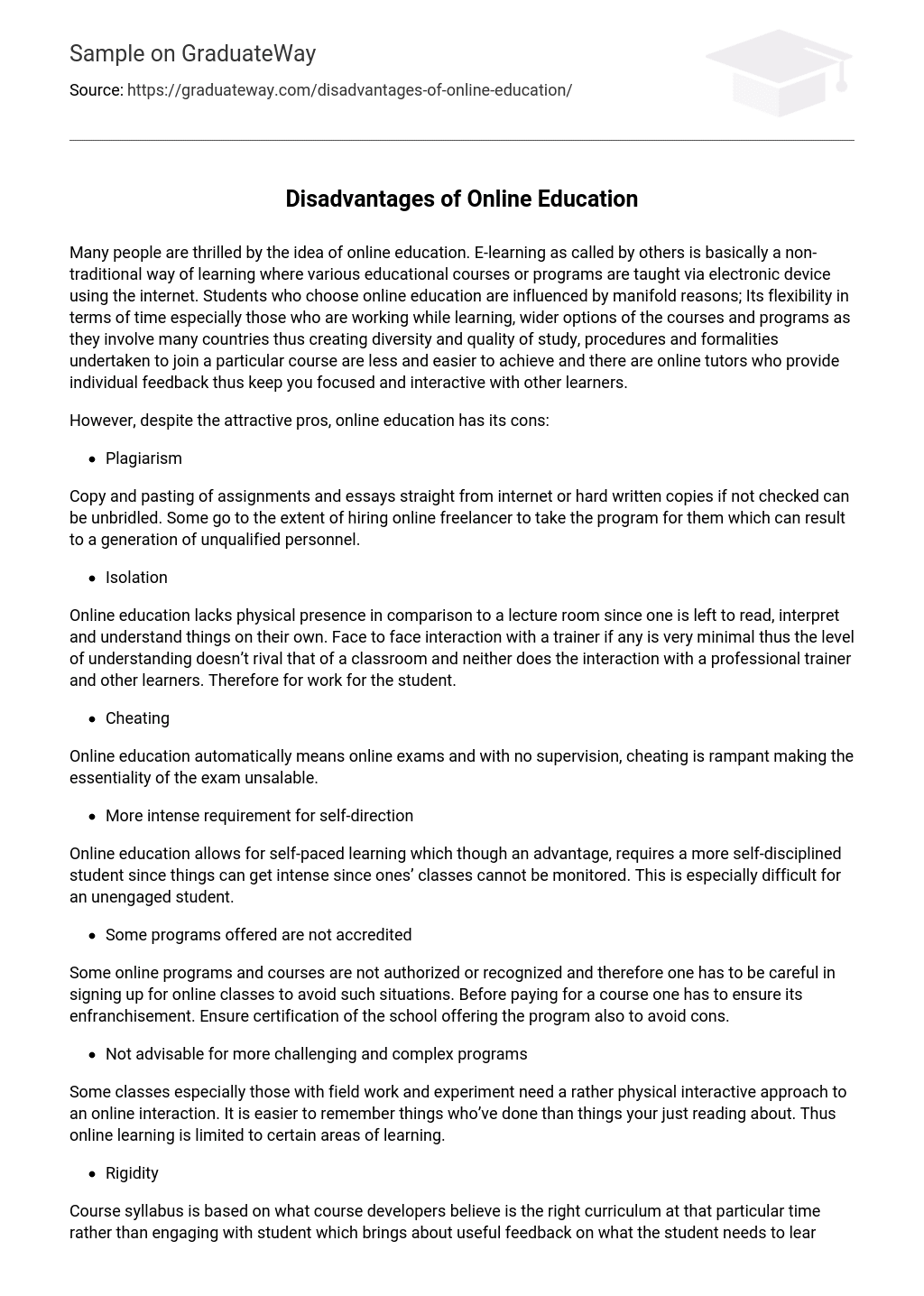Many people are thrilled by the idea of online education. E-learning as called by others is basically a non-traditional way of learning where various educational courses or programs are taught via electronic device using the internet. Students who choose online education are influenced by manifold reasons; Its flexibility in terms of time especially those who are working while learning, wider options of the courses and programs as they involve many countries thus creating diversity and quality of study, procedures and formalities undertaken to join a particular course are less and easier to achieve and there are online tutors who provide individual feedback thus keep you focused and interactive with other learners.
However, despite the attractive pros, online education has its cons:
- Plagiarism
Copy and pasting of assignments and essays straight from internet or hard written copies if not checked can be unbridled. Some go to the extent of hiring online freelancer to take the program for them which can result to a generation of unqualified personnel.
- Isolation
Online education lacks physical presence in comparison to a lecture room since one is left to read, interpret and understand things on their own. Face to face interaction with a trainer if any is very minimal thus the level of understanding doesn’t rival that of a classroom and neither does the interaction with a professional trainer and other learners. Therefore for work for the student.
- Cheating
Online education automatically means online exams and with no supervision, cheating is rampant making the essentiality of the exam unsalable.
- More intense requirement for self-direction
Online education allows for self-paced learning which though an advantage, requires a more self-disciplined student since things can get intense since ones’ classes cannot be monitored. This is especially difficult for an unengaged student.
- Some programs offered are not accredited
Some online programs and courses are not authorized or recognized and therefore one has to be careful in signing up for online classes to avoid such situations. Before paying for a course one has to ensure its enfranchisement. Ensure certification of the school offering the program also to avoid cons.
- Not advisable for more challenging and complex programs
Some classes especially those with field work and experiment need a rather physical interactive approach to an online interaction. It is easier to remember things who’ve done than things your just reading about. Thus online learning is limited to certain areas of learning.
- Rigidity
Course syllabus is based on what course developers believe is the right curriculum at that particular time rather than engaging with student which brings about useful feedback on what the student needs to learn.
- Still in its evolving stage.
Despite the increased market e learning, online education still needs more live training, easily understood practices and standard systems and processes. A good e- learning course involves strong user interaction, state of the art electronic devices and programs for effective interaction.
- No transformational power
Lacks the transformational power that come with live interaction with a professional educator. Physical trainers teach more than what is in books.
- Lacks the benefits that come with team work.
Innumerable benefits are derived when two or more minds come together as they bring dynamic minds to create economical technical solutions which is a benefit that online users can’t enjoy.





